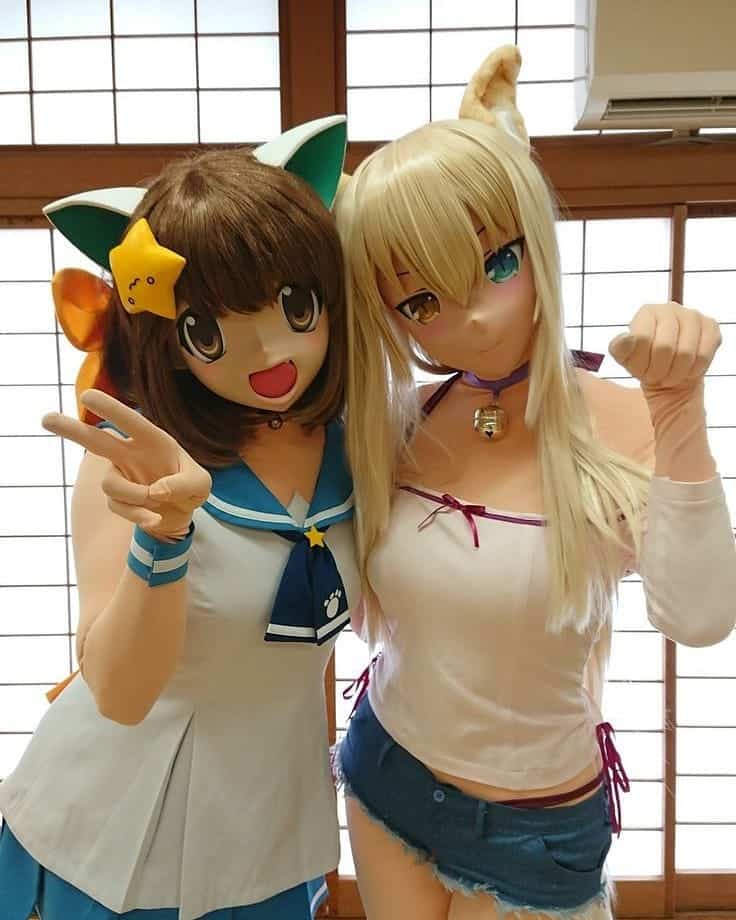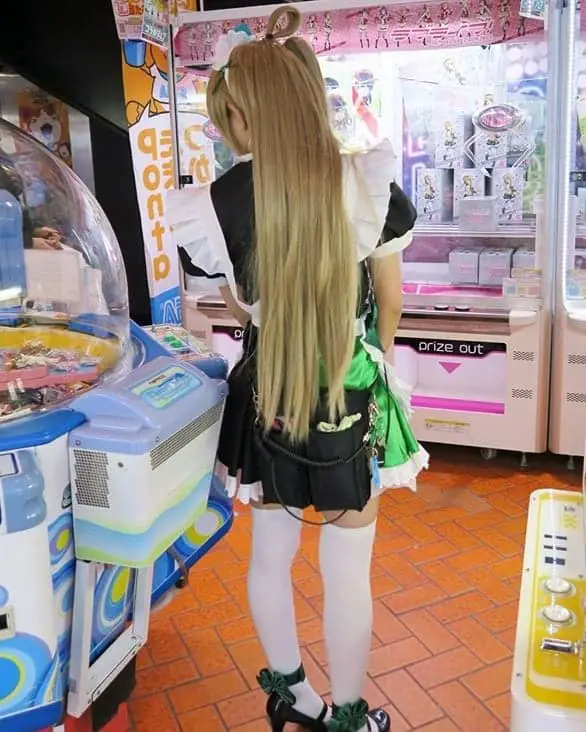There’s a lot of terms being thrown around the internet at the moment, like otaku, wibu, weeaboo. It’s understandable if you’re not sure what they all mean. Let me explain what these words are all about.
Weeb vs Otaku – what’s the difference? The main difference between weeb and otaku is that the word weeb refers to a person with an unhealthy obsession with Japanese culture whereas the word otaku can be translated as “study intensely” or “expert”.
In Japan, an otaku is anyone who has spent large amounts of time studying a specific subject, but is typically defined as obsessive fan of manga or anime culture.
It’s tough to know what to do with the term “weeb”. It has no agreed upon definition. A general sense is that otaku are obsessive nerds, and weeb is a more pejorative term for someone with those qualities.


Otaku is a term used to describe a Japanese person who is obsessed with their hobby (something like anime, manga, or video games, but it can be all manner of things). A wibu, weeb, or weeaboo is a derogatory term used to describe someone obsessed with Japanese culture on a very superficial level.
So what does Wibu mean? A Wibu is an individual who has an unhealthy obsession with Japanese culture. A Wibu tends to enjoy certain aspects of Japanese culture such as anime or manga but they are ignorant of wider Japanese traditions.
Otaku is much more wide-ranging, as someone who is a fan of technology could be referred to as otaku. Wibu on the other hand only refers to this single type of person who idolizes certain aspects of Japan.
Is It Better To Be Otaku or Weeb?
Although both terms are pejoratives, people are trying to reclaim the words. Otaku has become a subculture in Japan and abroad, with 42% of Japanese teens self-identifying with the term.
There has also been an attempt by western fans of anime to adopt the term and reclaim the wibu meaning (weeaboo) from those who would use it negatively. If you’re interested in anime, check out this guide that compares Crunchyroll with VRV. So, let’s compare – otaku vs weeb.
So, what is an otaku? The usage of the word otaku in Japan usually has negative connotations. An individual might use the otaku to describe themselves in a self-deprecating way. Although in most cases someone is considered an otaku just because they are a fan of something.
Studies have been conducted on the different types of otaku with the largest subgroup belonging to manga fans at 350,000 individuals.
Other groups include idol otaku, travel otaku, PC otaku, video games otaku, anime otaku, automobile otaku, and more.
The term otaku casts a wide net and is not something just reserved for anime fans, giving otaku meaning an all-inclusive form.

In 1989 the term gained notoriety thanks to the media’s adoption of the name ‘the Otaku Murderer’ in reference to Tsutomu Miyazaki. However, the term has become less negative over time.
Although the term can be used as an insult, being an otaku isn’t something to be ashamed about.
Wibu or weeb meaning on the other hand is something that makes people quite angry. The term originated as a derogatory name to use against anime fans. Particularly fans who went out of their way to add Japanese to their speech, or by being too obsessed with anime.
Did you know that you can watch dubbed anime on Crunchyroll?
It was this obnoxious way of acting from some western fans that brought the term into existence. The community then decided to start branding the term as a badge of honor. Unaware that their actions were offensive to the culture they claim to adore.
By dotting random bits of Japanese in their speech, or projecting Japanese culture the way it’s depicted in anime, wibu/weebs/weeaboo show a blatant disregard for true Japanese culture.
Can Someone From Outside Japan Be Otaku?
Technically speaking otaku is a term reserved for someone who is Japanese. There’s no harm in calling yourself otaku, however, we already have words in English that can be used.
Nerds and geeks are excellent English counterparts to otaku.
The assumption that being a fan of something predominantly Japanese makes you an otaku is incorrect. For example, just because you are a fan of anime, you don’t suddenly become an anime otaku. If you wanted to refer to yourself as an anime nerd, that would work much better.
If you are a serious fan of Japanese culture then you would not be an otaku or even a wibu, you would be a Japanophile. Japanophilia is the appreciation and love of Japanese culture, people, art, and history and is a perfectly useful way to describe yourself.
You shouldn’t be looking to characterize yourself as otaku, it’s still considered a negative term by a lot of people in Japan. If you want to call yourself that because you love the real Japan, then consider the term Japanophile.
If you want to be called otaku because you love anime, then I am afraid you could be closer to wibu.
If you love anime, you should check out this post to see whether Hulu is better than Crunchyroll.
What Do Japanese People Think About Wibus?
The inflammatory use of the term wibu/weeaboo is used by westerns against other westerners. The people of Japan do not have much of a problem with weebs at all. Japanese people tend to be quite grateful when foreigners show an interest in their country.
Although wibus may not be as clued up on Japanese culture as they claim to be, they’re still very excited about the country. Japanese people take that for the compliment it is, to see people genuinely passionate about their country.
Anime and manga is one Japanese export that inspires a lot of love with certain western audiences. The Japanese are immensely proud when they hear their products are appreciated overseas.
The people who have a problem with wibus tend to be other international people. There is such a deep and ancient history in Japan that some people take offense easily. A wibu might like anime and be excited to talk about it, but anime is an inaccurate reflection of Japan.
If a wibu talks excitedly about Japan through the lens of the anime they watch, they risk not understanding the culture properly. Other western people who have taken the time to discover real Japanese history are the ones who get offended. They then use wibu/weebs/weeaboo as a slur.
Japanese people could care less about it.
How To Tell If You Are Wibu
If you’re not sure if you’re acting like a wibu or not there are a few things to look out for. It doesn’t have to be a bad thing but weeaboos are known for being over the top, practically denouncing their own culture, and preferring everything Japanese. But let’s see what are the traits of a dedicated weeaboo.
Firstly, assess the way you use the Japanese language. Do you randomly insert Japanese words into the conversation for no real reason? Words like kawaii, desu, or chibi are big culprits. If you try to prioritize Japanese items, then you could be verging on wibu. For example, if there was something sold in both the US and Japan and you chose the Japanese thing despite additional costs. If there was no reason for doing that, other than it’s Japanese then you need to ask yourself why.
Some wibus try to force themselves to adopt personality traits that think Japanese people have. This is usually driven by anime and not anything like actual Japanese people. And obviously, the biggest tell is if people refer to you as weeaboo or wibu. It’s not in and of itself a bad thing, but it could suggest that your knowledge of Japanese culture is not up to par.
This is an easy fix however, the culture of Japan is an incredibly fascinating thing that stretches far beyond anime and manga. In order to understand real Japanese history, watch documentaries, and read books. Take a Japanese language class so you can learn how to speak the language without using a broken version in casual conversation. By learning the language you will gain an even deeper understanding of the culture.
Wibus are thought to have a widely misrepresented idea of what Japan is like. The version of Japan that’s shown in anime is overly dramatized and produced for mass consumption. By taking the time to learn about how the real history of Japan is different you will gain a much deeper appreciation for this wonderful country.
There Is a Lot to Love in Japanese Culture
One of the best ways for both an otaku and a weeaboo to experience Japan is to travel to this beautiful country and see its wonders in person. While you’ll come to realize not everything in this country is about anime, nor do people wear cosplay all the time, there are still phenomenal sights to behold while you’re here. You can enjoy authentic food, visit famous landmarks, and get acquainted with the reality of it.



